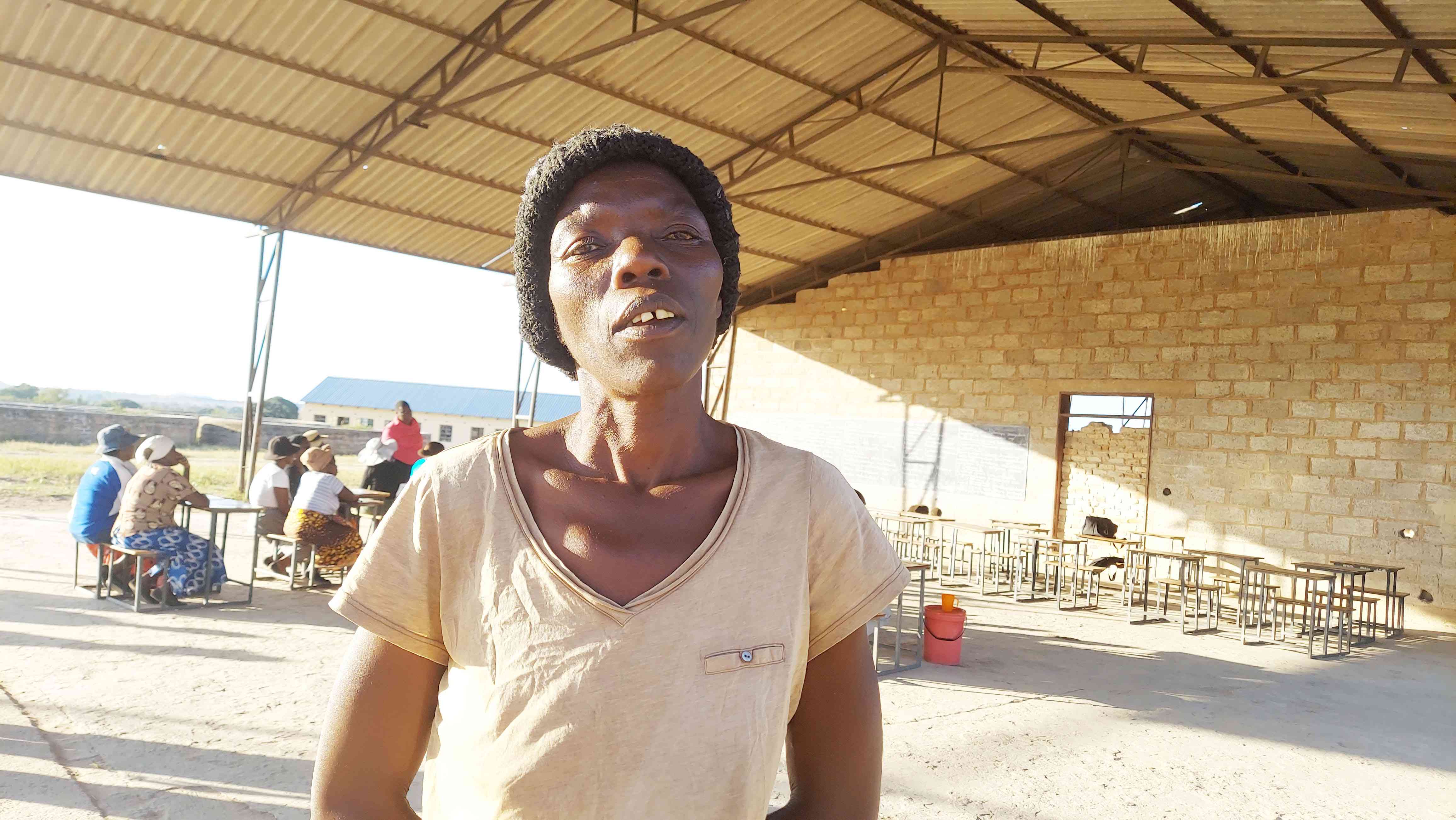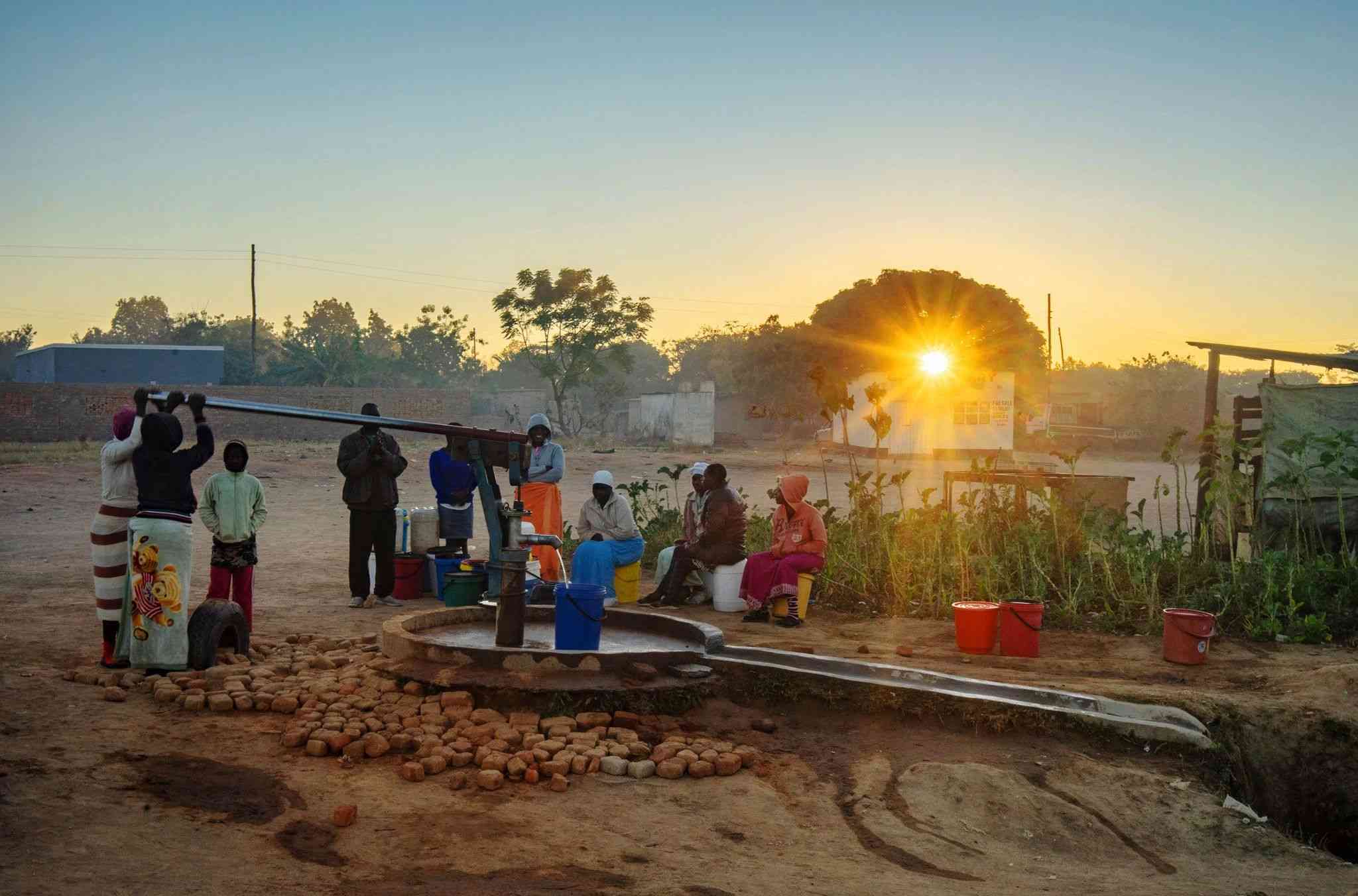
Sarah Zhou (not real name) grew up in a poverty-stricken family and at the age of 15, her father saw marriage as a way to reduce the family's financial burden.
Zhou was married off in the neighbourhood, but this did not secure economic stability for her and even the family.
Her father was among hundreds of workers that had been retrenched at the chrome-mining company Zimasco in Shurugwi in 1992 due to effects of the Economic Structural Adjustment Programme (Esap).
However, Zhou’s marriage did not last and she divorced after giving birth to two children.
“The husband was violent and he had another wife,” she said.
“Although I was brilliant at school my father saw me as someone who could help offset the family financial burden.
“That was not the case because the family’s financial problems continued even after my father died.”
Zhou has since joined the Great Trek to the city hoping to find better opportunities.
- New perspectives: Zim govt has to find balance between economy and politics
- New perspectives: Zim govt has to find balance between economy and politics
- In the groove: How artistes use topical issues for fame
- In the groove: How artistes use topical issues for fame
Keep Reading
“I left my rural home in Mberengwa with hopes of getting a job in Gweru where I work at a fruit and vegetable market,” she said.
Prevalence of child marriages in Zimbabwe is higher in rural areas compared to urban areas and according to Unicef, there is a sharp rural-urban divide: two in five women aged 20-24 got married before age 18 in rural areas compared to one in five in urban areas.
Zhou is not alone, Patricia Mugaha, a mother of seven, from Cotswold village in Mhangura’s ward 10 said her world turned upside down when her first born daughter eloped and got married while she was doing Form 3.
“She just disappeared and went to stay with her boyfriend, a gold panner,” Mugaha said.
“My daughter accused me of failing to pay for her school fees and other necessities prompting to marry with hopes ameliorating her problems.
“That was not to be as she is struggling to survive.”
A myriad of girls across the country’s rural areas face similar predicaments as their rights have been violated left, right and centre despite the country having put in place several policies to reverse poverty.
The policies have failed to address the macroeconomic volatility, unemployment and inefficient social assistance programmes, which are the main causes of poverty, especially in rural areas.
“There is a drought this year and many people will die of hunger,” said Mugaha.
“As we speak, nothing has been put in place to assist villagers with food.
“In such scenarios, I foresee many young girls getting married.”
Over the years, the country has developed and implemented several economic policies, which however, suffer from lack of execution.
In most cases, the policies suffer a natural death with no documented reasons for their termination.
Among the policies was the Growth with Equity Policy (1981), which sought to address the imbalance between predominant foreign ownership.
Between 1991 and 1995, the government introduced a programme known as A Framework for Economic Reform which also included Esap.
The fundamental objective of the programme was to improve living conditions, especially for the poorest groups.
The Zimbabwe Millennium Economic Recovery Programme (2000-2002) was meant to “fight spiralling inflation” which was cited as a major cause of macro-economic instability.
There was the Medium Term Plan, launched in July 2011 with the aim of guiding all government plans and programmes beyond short-term stabilisation.
The Zimbabwe Agenda for Sustainable Socio-Economic Transformation was a national development plan between 2013 and 2018 to achieve sustainable development and social equity anchored on indigenisation, empowerment and employment creation.
Under the Second Republic, the country has continued to churn out economic policies that subject citizens to heavy taxes.
In his 2024 national budget statement, Finance minister Mthuli Ncube introduced additional taxes, including an upward review of levies on fuel.
Zimbabweans are subjected to various tax heads, such as pay as you earn, the 2% intermediated mobile money tax, 15% value-added tax, among others.
“Life is difficult for us here because goods and services are expensive,” said a tobacco farmer, Solomon Chekumarara of Mudhema village in Hurungwe’s ward 10.
“Most people are subjected to poverty even if they sold their tobacco because the crop is no longer viable to grow.
“We appeal to the government to come up with policies that encourage us to keep growing tobacco.”
Chekumarara said the high cost of goods and services coupled by the El Nino-induced drought will push more families into poverty.
He said there was a likelihood of an increase in child marriages in the area while more young girls are likely to join the sex work band wagon at Magunje growth point.
A traditional leader in the area, headman Nzunguchena, born Washington Muchenwa, bemoaned the prevalence of child marriages in the area.
“It is an elephant in the room,” he said.
“Very young girls are being married off because of poverty.
“We also have challenges with churches that continue to marry off young girls.
“As traditional leaders we are working round the clock to deal with the scourge.”
The coming into being of the Cotton Company of Zimbabwe and Cargill at the height of trade liberalisation in 1994 to replace the Cotton Marketing Board, which was then the sole cotton merchant in the country, also painted a gloomy picture about the future of the industry, as seen by the significant reduction in cotton production.
Cotton production in Zimbabwe declined to an all-time low of 32 000 tonnes in 2016 from 84 000 tonnes in 2015, and 143 000 tonnes in 2014 after a decade-long spell of perceived low prices averaging US$0,30 per kilogramme.
The entire cotton industry value-chain has collapsed, a development that has heralded doom for communities where the crop is grown.
Meanwhile, most communities in Gokwe North have been left out of development programmes that were undertaken by the government since the demise of the cotton industry more than two decades ago.
The current state of the economy has failed to spur development in this district, one of the biggest in the country with a population of 301 000 people and the most impoverished.
“The situation is bad and most people would rather marry off their daughters to offset their financial burden,” said headman Knox Nyamadzawo of Gwebo village.
“The dearth of the cotton industry has left all of us in quandary.”
Development expert Takemore Mazuruse said there was a need for the government to increase agricultural productivity in rural areas.
“Government should ensure that its policies increase agricultural productivity to improve food security and reduce poverty in rural areas,” he said.
“Social protection is critical to guard the welfare of the vulnerable, especially girls and young women.”
Mazuruse said limited access to education and job opportunities in rural areas led parents to believe that marriage was the best option for their daughter’s future.
“Policies should also foster development in the educational sector while at the same time look at how best girls can be kept in school,” he said.
Kumbirai Kahiya, women rights activist and Girls and Women Empowerment Network director said the country has progressive policies regarding gender equality and empowerment of girls and young women.
“However, the policies and frameworks are not supported by financial resources and practical enforcement,” she said.
“Take section 20 in youth. Very good, but does not facilitate capital for young businesspeople.
“Then on vocational training, they are not enough and at times the young women have no idea on the existence of the policy or its provisions.
“Because we are not deliberate about what goes to the young women.”
Kahiya said there were three drivers of child sexual exploitation and these include lack of policy enforcement, religious and cultural practices and poverty.
“I prefer not to call it child marriage as I strongly believe a child cannot consent to marriage,” she said.
“If our practices, policies and systems do not address access to affordable or free effective and relevant education for vulnerable people then they cannot eradicate sexual exploitation in children under the guise of marriage.
“If there is no sustainable facility to finance young women's businesses or relevant and effective modern day skills training then we cannot end poverty and not end forced marriage and other unions.”
Kahiya said at law survivors of child marriage should be allowed back into school but this was not happening because the law was not being enforced.
“We leave these girls with no choice if we do not return them to school, provide financing for their projects and punish perpetrators to set an example,” she said.
“In the end, they either go back to the abuser or are forced into another exploitative union just so they provide for themselves and their babies.”
Zimbabwe Gender Commission CEO Virginia Muwanigwa said the commission had embarked on sensitisation workshops through traditional authority structures with the aim of transforming communities to be more sensitive on sexual and reproductive health and rights.
“The Zimbabwe Gender Commission has done research on child marriages. The commission is raising awareness on gender-based violence by talking to gate-keepers of culture, traditional leaders and communities to eradicate this problem,” Muwanigwa said.
“The commission has also added its voice to those calling for more protection of the girl child in line with the constitution.
“This includes calling for alignment of laws to give effect to the constitution.”
Human rights lawyer Zororai Nkomo said there was need for the government to come up with policies that reverse the tide of poverty in rural areas.
“The insatiable desire of the government to privatise public services under the auspices of improvement of service delivery is widening the inequality gap, which subsequently violate people’s socio-economic rights,” Nkomo said.
“We need policies which ameliorate poverty in rural areas. For the many years we have seen tax injustice where the poor and rich pay the same tax for services, this has worsened the poverty levels for many rural people.
“Tenets of social justice demand that those making more money should pay more, so that we cushion vulnerable members of our communities.
“Capitalistic economic policies have negatively affected the right to education by those in rural areas and the state has a constitutional obligation to promote education for the realisation of socio-economic rights.
“Despite the fact that Zimbabwe is a state party to the Convention on the Rights of the Child, which obliges it to provide basic free quality primary education, the country continues to ignore this right and no progressive steps are taken to realise this right.”
“School fees in primary education, which are fuelling school dropouts and the problem of seeing profit and business in service delivery, have seen violation of socio-economic rights which is the major reason why we are seeing the widening of poverty and inequality in the country.”
Respect Chofamba, Public Service, Labour and Social Welfare ministry’s public relations officer, requested that questions be sent in writing and she had not responded by the time of going to print.
Mugaha said she would do everything possible to protect her children from marrying before they turn 18.
“I am guarding my daughters from marrying early,” she said.
“I am working hard to keep them in school so that they get jobs before they get married.”
*This story was produced with support from the WAN-IFRA Women in News Social Impact Reporting initiative.











